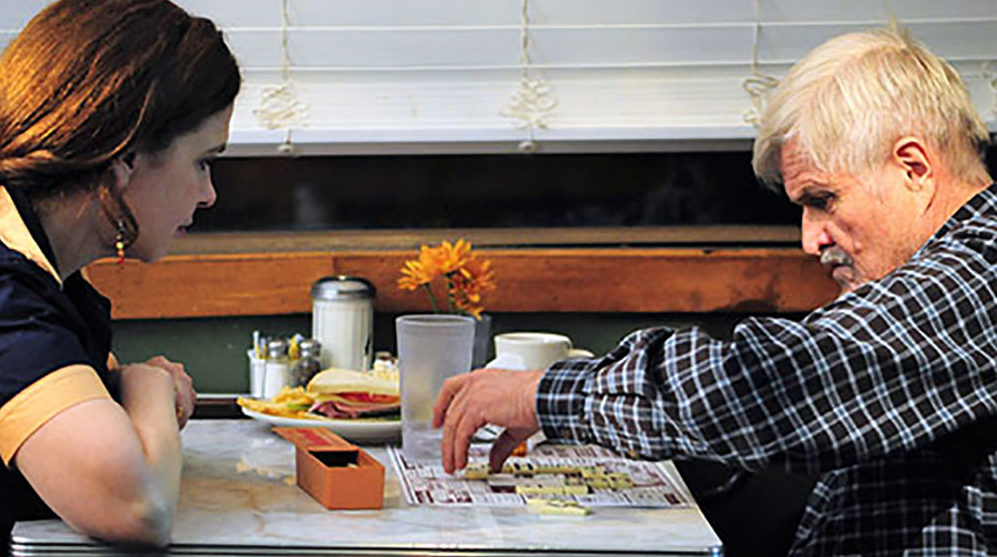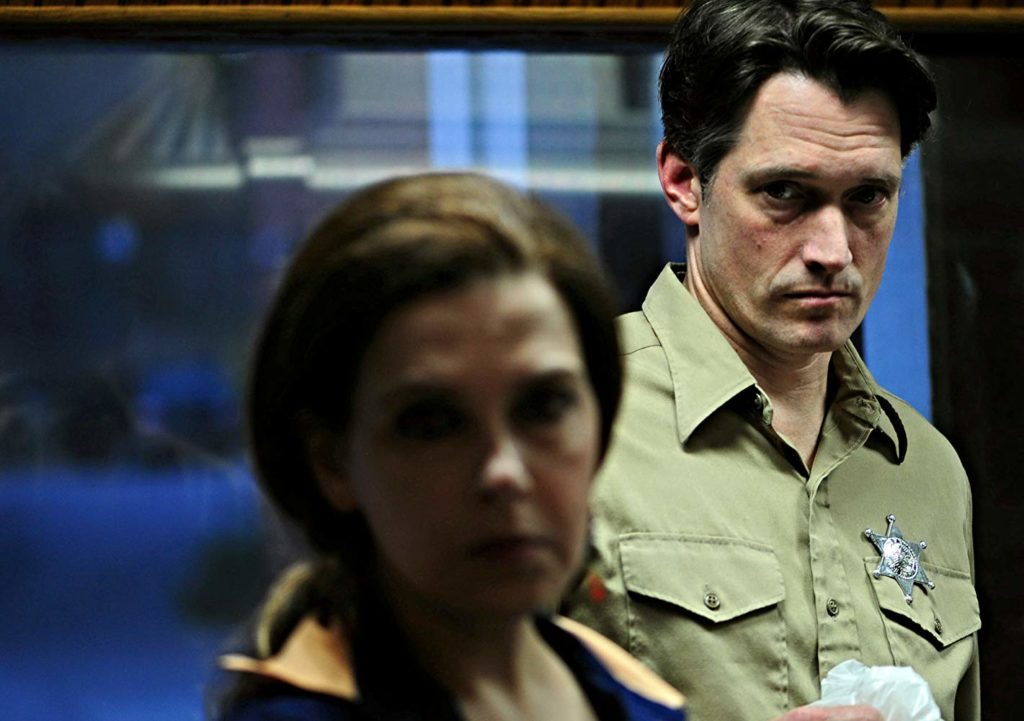Watching “Danni,” the short film directed by Peter Jensen, one is aware they are watching a production of high order. The acting, direction, and cinematography are all top notch, making a purposeful film that is easy to watch and engaging. The film’s characters are relatable – for the most part – and likable, which is an even bigger achievement. However, the story suffers as a result of its short run-time of 24 minutes and a terse, sudden ending that makes the ultimate product a little harder to digest than its filmmakers likely intended.
“Danni” takes large steps to align us with its protagonist, Danni early on. The film opens with her watching old family videos on 35mm tape, and the picture has that feel of a film produced for a different time where cell phones are absent and personal connection replaces digital ones. The film is also about addiction – relationship addiction and chemical – although in a latent way that is exposed through its characters’ interactions rather than in an obvious way. The film is written by Jeana Reilly, who also plays Danni, and has an intimate, personal feel to it that is often missing from independent cinema.
First the positives, of which there are many contained within this film. The acting is of a high order, and, for an indie, pristine. You don’t get the sense that any of these actors are trying to act, and they are incorporated into the film – save one – in a seamless way that makes the production seem easier to make than it probably was. Danni is, or course, fleshed out; she’s a multi-faceted character. She works at a diner, but the film dangles a past in front of us that is palpable and real. A run-in with the town sheriff (Don Draxler) in the diner shows a relationship past that Danni is trying to get away from; not out of fear, but out of necessity. Danni is trying to “figure things out,” and needs to take a break from the men in her life. She’s tasked with sparse dialogue but a greater physical performance in this film, and she delivers. Draxler’s is a throw-a-way character but with a good performance he makes us remember him. It’s a credit to both his acting and the script that we like him as much as we do.
There’re some other characters as well, all who do a good job filling in their characters’ shoes and making them believable in the process. There’s Frank the diner cook, played by Richard Vetere, who has an almost father-like relationship with Danni and takes a bit of concern over the struggle she seems to be undergoing during one well-well-written heart to heart. There’s another, a patron named Jimmy (played by Jim Cyborowski) that shows more depth than his one-scene character probably allowed. “It’s lousy food,” he muses as he rejects an offer to wrap up the rest of his meal. “I just come here for the service.” He also exposes a past of alcoholism, which he and Danni share in a smartly-written bond. An old drinking buddy has reawakened that part of him; Danni will have the same test in the film’s conclusion, though I Feel Jimmy’s character is touched on in greater detail than hers, lugubriously.

Finally theres a young girl, played by Emily Chastain, whom Danni views likely as a younger composite of herself, that rounds the film out in a positive way.
As mentioned above, “Danni” features wonderful cinematography also, with shots that are immediate and detailed. Shots such as a dragging, side view of a car as Danni drives to work, as well as closeups on her tired face make it an engaging picture to watch. One of my favorite scenes in the film has to be where Danni dances to a song on the jukebox alone in the diner, a moment of rest allowed on her weary life. This is juxtaposed with a later scene of her dancing with the sheriff – as in a scene with another at the film’s conclusion – that feels forced and heavy. Danni needs to be alone to recuperate; a fact the film makes well-known in its message.
Regrettably, the film does break down somewhat in the film’s third act, which feels rushed and tacked on. Much about this final act can’t really be said without giving away the film’s conclusion, and I won’t give spoilers, but I feel the filmmakers’ message is lost amidst a scene that was supposed to land harder than it ultimately does. It introduces an abusive and rather unlikable character in that of John (played by John Moran) a cop that Danni used to know, and and ending that wanted to be more vindicating that it ultimately is. Wether the film’s conclusion would have been helped by adding an extra five minutes, or a less symbolic ending and one more based in reality, remains to be seen. But at the end of the day, it is confusing, which takes away from the marvelous production given to the first and second acts. However, it’s ultimately forgivable, as “Danni” still makes an impact, but I wonder what some extra time devoted to Danni’s ultimate awakening would have done for the film overall.
But, all-in-all, “Danni” is a competent picture that entertains and passes easily. It’s an exploration film that’s pensive and kind to its characters, and makes them feel real rather than cookie cutter. That alone may be its saving grace.
-by Mark Ziobro


